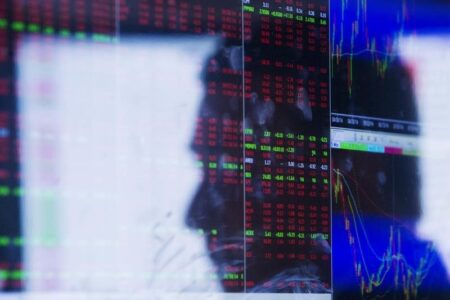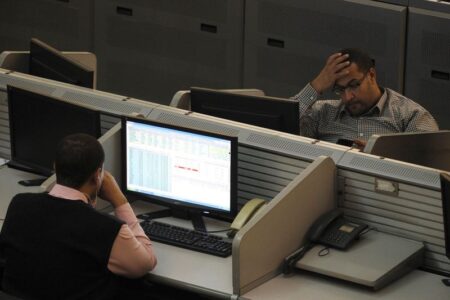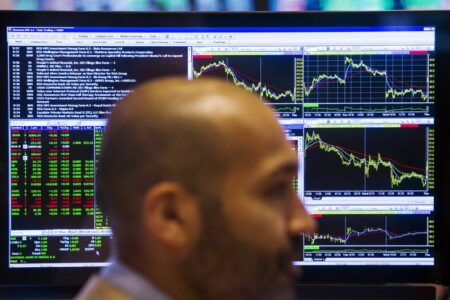Final Verdict
Although there is tremendous competition among online brokers, for serious day traders, Interactive Brokers is unrivaled on an overall basis because it covers all trading markets in many countries around the world, and its technology is superior in regards to the flexibility it provides customers for routing orders, automating their trading strategies, and identifying trading opportunities. Serious day traders also choose IBKR because of its low scaled commission rates and the speed of its platform.
For those looking to give day trading a try without additional costs, commissions, or fees, Webull offers stock, ETF, and options trading. While Webull does not provide traders with tools to route orders or fully automate their trading strategies, Webull’s trading platforms are well built and responsive. Over time, however, serious day traders are likely to migrate to IBKR for the better trading execution and ability to see all their trading on a single platform.
Frequently Asked Questions
What Is Day Trading and How Does It Work?
Day trading consists of a trader entering and exiting (buying then selling; or selling then buying) multiple trades in a particular security during a single trading session. Rather than investing over a longer time frame, day traders are looking for price action that allows them to trade in and out of the market. Day traders typically use a margin account so they can sell stocks short, but also to obtain leverage in their trading account.
Because day traders are very reliant on execution speed, they often trade in very liquid issues with high trading volume to ensure they can enter and exit trades. Because of the short-term nature of day trading, charting and technical analysis are typically utilized by day traders, and many automate their trading strategies to look for opportunities to act on instantaneously.
What Are the Risks of Day Trading?
Day traders face several risks, first of which is market risk since markets can move very quickly. These sharp swings can result in orders being filled at poor price levels. Further, day traders are competing against large institutional traders and hedge funds that are well capitalized and often have better access to news, information, and price discovery. In addition to market risk, day traders may also have risk if they use margin to maximize trading leverage or maintain a position overnight to maximize trading leverage.
Beyond market risk and competition with sophisticated traders, day traders often have additional costs, which include commissions on a high volume of trades. Further, day traders often have additional costs for real-time data fees and other technical analysis tools they may use.
How Do Margin Rates Affect Day Trading?
Margin is charged to customers that borrow money to sell or purchase stocks and hold those positions. Therefore, there would typically be no margin interest payments for day traders that close out their positions at the end of each trading day. Day traders use margin accounts to both facilitate short positions and to leverage their positions up to four times the cash value of their accounts. The leverage component of margin account trading provides traders with greater profits, but also with commensurately higher risks on losing trades. Further, losing intraday trades can also result in margin calls or the need for traders to post additional maintenance margin to maintain a position.
What Should You Consider When Choosing a Day Trading Platform?
Once a trader determines they will begin day trading, they have multiple decisions to make regarding the platform they choose. This should be done by the trader first determining the markets and trading vehicles they will transact in, then determining which brokers support those markets.
Since day trading consists of multiple trades in and out of the market, the use of strong technology platforms that offer faster execution or trade automation has become more desirable, and the capabilities of the various platforms vary. Day traders should, first and foremost, look for a platform that offers fast execution, and this often means having the ability to route their orders to their exchange of choice. Second to this is the cost of trading; keeping commission rates and other fees low is very important for day traders. Further on this theme, many day traders also look for a platform that can be customized, that has strong market screeners, and can be programmed to enter and exit trades independent of the trader based on their rules. Other factors to consider on cost include whether there is a platform charge and what commission rates and fees will be on the platform chosen.
Finally, outside of trade execution and management, day traders want access to strong charting and other analytical tools, including options analysis tools. Other traders will look for more advanced technology, such as the ability to backtest strategies and paper trade before risking capital. Finally, customer support may be important to new day traders just getting started.
Methodology
Day trading is a highly active form of market speculation that requires a different set of tools than less active forms of trading. We reviewed several of the top online brokers based on their margin rates, available assets, order routing controls, quality of trade execution speed and price, charting, advanced options analysis tools, backtesting, and the ability to enter highly customized orders to determine our list of the top day trading platforms in the industry.
Read the full article here









